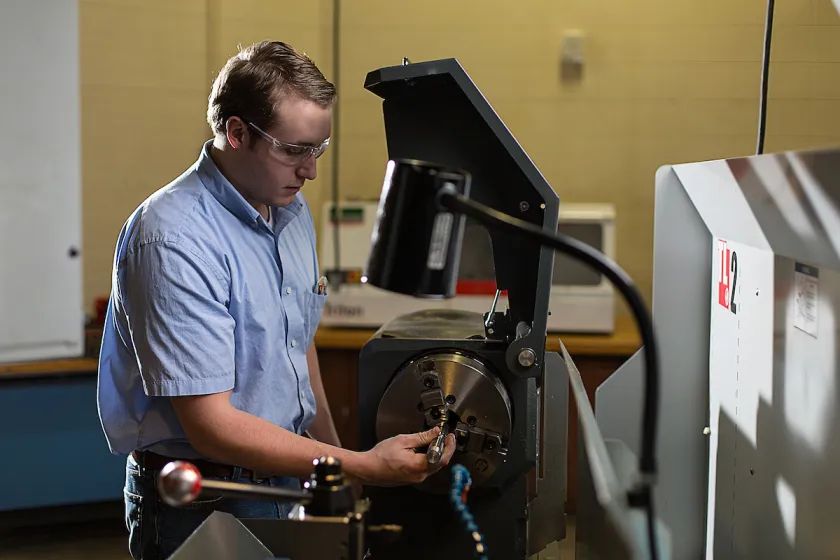The Upper Peninsula Manufacturing Consortium, convened by Northern Michigan University to meet industry workforce demands by facilitating multiple career pathways, has received a grant worth nearly $1.3 million. The State of Michigan's Marshall Plan for Talent is funding 13 consortia to develop talent pipelines for high-wage, high-demand occupations through enhanced education and training initiatives.
The three manufacturing career pathways endorsed by the consortium are: production technician; machining; and welding/industrial maintenance and repair.
“We're committed to ensuring that students gain the basic skills and knowledge that manufacturing partners demand through competency-based education and stackable credentials between K-12 and post-secondary institutions,” said Steve VandenAvond, vice president of NMU Extended Learning and Community Engagement. “For example, students who complete the machining pathway might finish an associate degree in CNC technology at NMU or Bay College to work as a CNC programmer. They can continue with a bachelor's at NMU or Michigan Tech to work as a CNC manager, and go a step further to obtain a graduate degree at MTU. The goal is to create productive employment options with multiple advancement opportunities.”
The consortium also seeks to expand and strengthen career pathways outside of a higher education degree.
“We plan to enhance Early/Middle College offerings through certifications and programs aligned with employer demand,” said Brian Sarvello, career education director of the Marquette-Alger Regional Educational Service Agency (MARESA), the fiscal agent for the grant. “We will also integrate professional ‘soft' skill development into the curriculum so that those students who choose to accept a position immediately after high school can develop a foundation of workplace readiness before they graduate.”
The U.P. Manufacturing Talent Consortium's educational partners include 19 K-12 districts, four ISDs and three post-secondary institutions. Sixteen regional manufacturers are also represented.
“The current and emerging talent demands of U.P. manufacturers have been the central focus of our consortium's efforts,” said Dave Nyberg, director of corporate engagement at NMU. “From the initial planning meetings though the development of our proposals, executives from our region's key manufacturing partners have provided insight regarding their talent needs and how we may partner in providing meaningful career opportunities for U.P. students.
“This talent equipment grant will build upon the university's growing manufacturing partnerships through the Department of Engineering Technology and College of Technology and Occupational Sciences. We look forward to building on this consortium's success to provide economic opportunity for students while removing barriers to growth for U.P. manufacturers.”
Most of the Marshall Plan funding is earmarked for equipment such as robotic welders, lathes and mills. A mobile manufacturing “Fab Lab” will give small rural school districts access to hands-on instructional experiences on a rotating regional schedule.
“Northern was happy to convene the dialogue with education and industry partners as soon as the Marshall Plan was announced,” VandenAvond added. “After hours of research, planning and close collaboration with MARESA, the outcome is a grant-funded proposal that emphasizes flexible career laddering and the importance of career and technical education options, from high school through a master's degree.”
This is one of two NMU-guided initiatives to receive Marshall Plan for Talent funding. The U.P. Cybersecurity Consortium was awarded two innovation grants totaling $2.47 million, which will leverage the new U.P. Cybersecurity Institute on NMU's campus as a shared regional resource.

